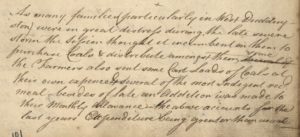As of the start of the month LAC had posted 20 items in the news section in the left-hand column of its home page this year. They can be roughly categorized into four groups: Operations, Policy, Acquisitions and Outputs. Here’s the list ordered by group then date.
| Date | Topic | Group |
|---|---|---|
| 27-Jan-2021 | Rare book from 1943 acquired by Library and Archives Canada—was one of first sources to sound global alarm about Holocaust in progress | Acq |
| 15-Mar-2021 | Library and Archives Canada Foundation funds purchase of unique centuries-old Canadian legal heritage documents | Acq |
| 5-Jan-2021 | Exhibition: Hiding in Plain Sight: Discovering the Métis Nation in the Archival Records of Library and Archives Canada | Ops |
| 8-Jan-2021 | Temporary suspension of digital copy services | Ops |
| 8-Feb-2021 | Ottawa Public Library-Library and Archives Canada joint facility: A landmark cultural infrastructure project pointing the way to a greener future | Ops |
| 11-Feb-2021 | Interruption of computing services on Saturday, February 13, 2021 | Ops |
| 16-Feb-2021 | February 22 – Resumption of copy services and on-site consultations in Ottawa | Ops |
| 16-Feb-2021 | Reopening – Winnipeg public service point now open by reservation | Ops |
| 26-Feb-2021 | OPL-LAC joint facility: Inviting Indigenous artists! | Ops |
| 2-Mar-2021 | Technical difficulties (update): Collection Search | Ops |
| 10-Mar-2021 | Reopening: Limited access to microform collection in Ottawa | Ops |
| 10-Mar-2021 | Interruption of computing services on March 13, 2021 | Ops |
| 1-Apr-2021 | LAC Ottawa: Public service point closed and temporary suspension of copy services | Ops |
| 9-Feb-2021 | Launch of third edition of Lingua Franca e-book | Out |
| 22-Feb-2021 | A new Google map to search for Indigenous-related collection items | Out |
| 2-Feb-2021 | LAC’s Vision 2030: We want your input | Pol |
| 3-Mar-2021 | Taking steps toward reconciliation at Library and Archives Canada | Pol |
| 9-Mar-2021 | The Francophone Name Authority Program: Progress for the Francophone Library Sector | Pol |
| 19-Mar-2021 | Policy on Maintaining the Canadian National Union Catalogue | Pol |
| 1-Apr-2021 | Update on Theses Canada for universities and students | Pol |
Margaret Atwood, poet, novelist, literary critic and essayistRoch Carrier, novelist and authorCharlotte Gray, historian, author and biographerSerge Joyal, former senator, art collector and philanthropistTerry O’Reilly, broadcast producer and radio personality.


 News from ScotlandsPeople on long-awaited kirk session records.
News from ScotlandsPeople on long-awaited kirk session records.